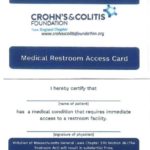What is Inflammatory Bowel Disease (IBD)?

Inflammatory bowel disease (IBD) affects approximately 3.1 million people in the U.S., and it affects children and adults (even the elderly). IBD is comprised of two major disorders: Ulcerative Colitis and Crohn’s Disease. Ulcerative Colitis is inflammation only in the colon, whereas Crohn’s Disease can involve any part of the GI tract from mouth to anus. Typically, Crohn’s Disease involves the colon and the end of the small intestine. Both Ulcerative Colitis and Crohn’s Disease have their main symptoms in adults as diarrhea, blood in the stool, abdominal pain, and weight loss. The diagnosis is made with testing that includes blood and stool tests, as well as colonoscopy and perhaps certain radiographic testing.
In the past 15 years, there have been major breakthroughs in the treatment of IBD, with many options for patients. The goal of treatment is not only to control and resolve the symptoms but also to heal the inflamed bowel. The best medications we have include (in no particular order):
- REMICADE ® (Infliximab)
- HUMIRA ® (Adalimumab)
- CIMZIA ® (Certolizumab Pegol)
- SIMPONI ® (Golimumab)
- ENTYVIO® (Vedolizumab)
- STELARA ® (Ustekinumab)
- XELJANZ ® (Tofacitinib)
- METHOTREXATE (Trexall, Rheumatrex Dose Pack)
Even more, medications are on the horizon. Determining which medication is best for each patient is a shared decision between the patient and his/her doctor.
Although it makes sense that diet plays a role in the development of IBD and its activity, no diet has been shown to be clearly effective at improving inflammation. Many feel that a low FODMAP diet or a specific carbohydrate diet can help symptoms, but no effect on the inflammation has been shown. Presently, there is a national study comparing a specific carbohydrate diet with a Mediterranean-style diet. We look forward to the results of this study. Processed foods are felt to have a detrimental effect on IBD, so should be avoided and minimized. Another goal is to improve people’s quality of life. By controlling the symptoms, patients have more control over their lives, both socially and at work. Knowledge and an understanding of their disease are also helpful.
 An additional way that we can help our patient’s quality of life is with the Restroom Access Card. Massachusetts is one of 16 states that has a Restroom Access Law, requiring businesses to allow access to a private bathroom if a public restroom is not readily available. We have cards that patients can carry with them to remind businesses of this law.
An additional way that we can help our patient’s quality of life is with the Restroom Access Card. Massachusetts is one of 16 states that has a Restroom Access Law, requiring businesses to allow access to a private bathroom if a public restroom is not readily available. We have cards that patients can carry with them to remind businesses of this law.
The advances in IBD will continue, so ongoing discussions with your health care team are important.
Please also read: Hot Off The Presses IBD Patients: Get with The Guidelines and Get Your Shingles Shots
